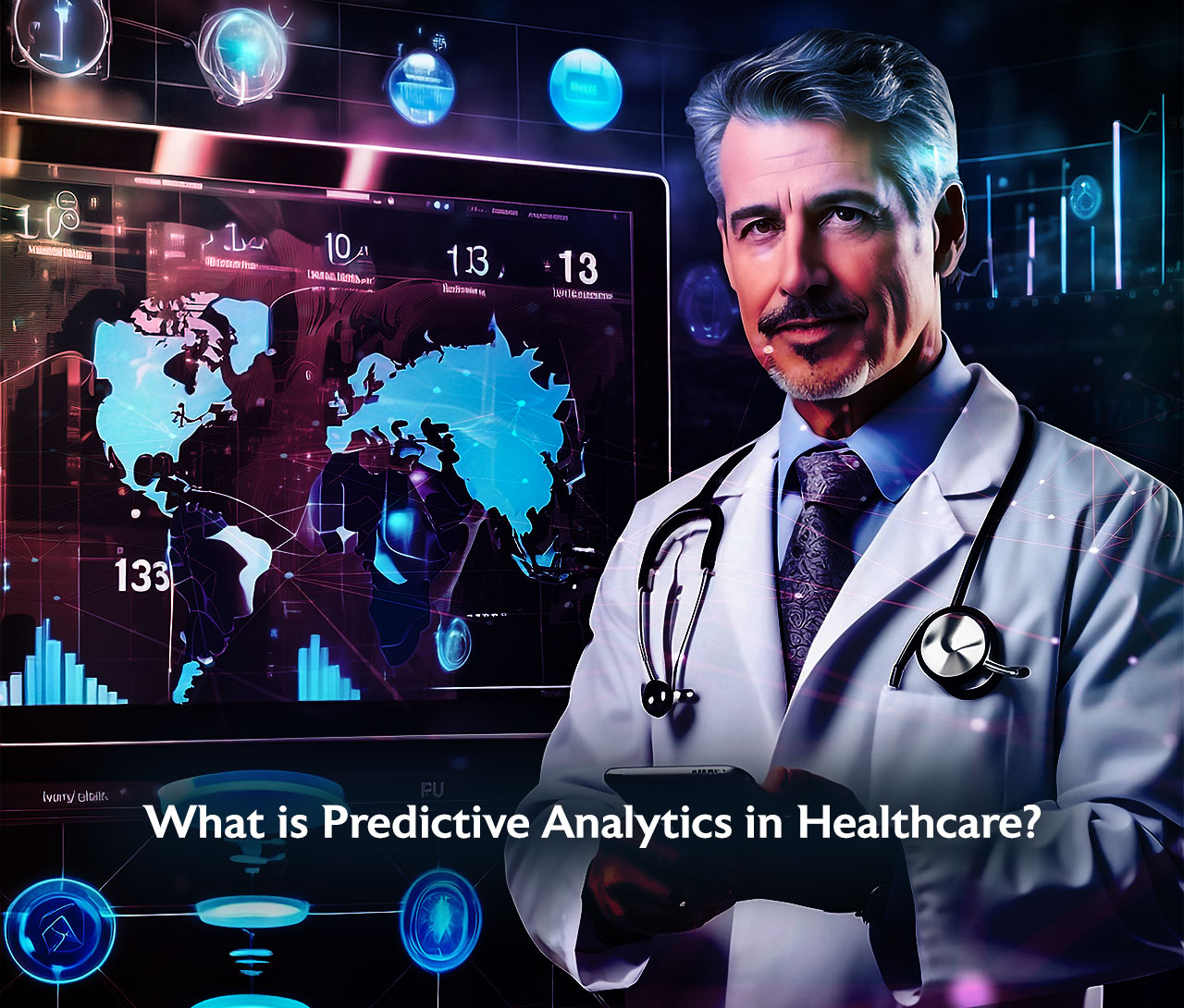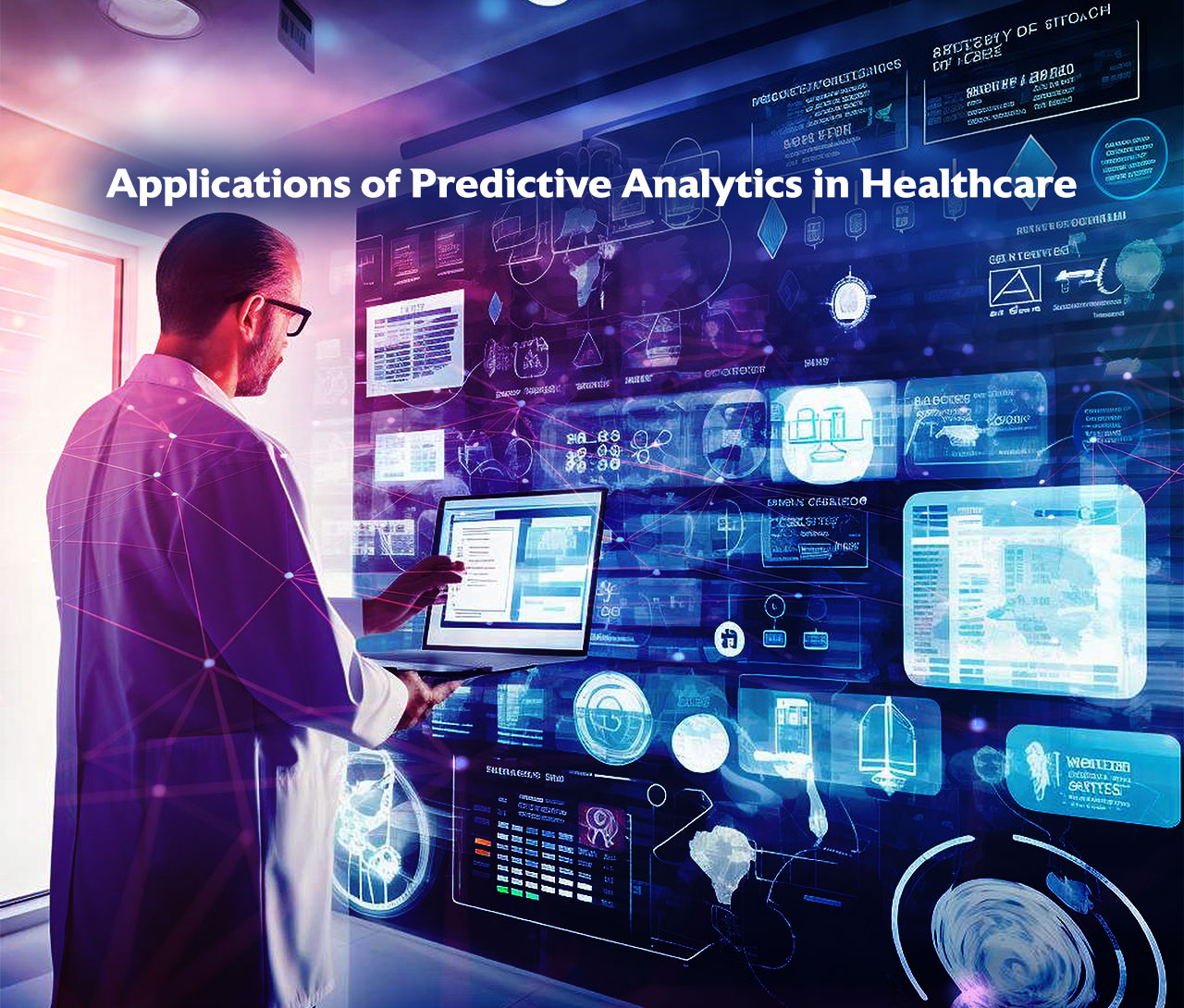The healthcare industry is undergoing a transformative shift, with data analytics emerging as a powerful tool for improving patient care and outcomes. Predictive analytics in healthcare, a specific branch of data science, harnesses historical and current healthcare data to anticipate future health events. According to Statista, the predictive analytics software industry is expected to reach a valuation of $41.52 billion by 2028.
This comprehensive guide delves into the world of predictive analytics in healthcare. We’ll explore its core functionalities, delve into its numerous applications, and discuss the potential benefits and challenges associated with this innovative technology. By the end, you’ll gain a clear understanding of how predictive analytics is revolutionizing healthcare and paving the way for a healthier future.
What is Predictive Analytics in Healthcare?
Predictive analytics in healthcare leverages advanced data analysis techniques to extract insights from vast amounts of patient data. This data can include:
- Electronic health records (EHRs)
- Claims data
- Lifestyle factors
- Genetic information
By analyzing these datasets, sophisticated algorithms can identify patterns and trends, allowing healthcare providers to:
- Predict the likelihood of future health events: This includes potential disease outbreaks, chronic disease progression, and patient readmission rates.
- Identify individuals at high risk: Early identification of potential health issues enables preventive measures and personalized healthcare interventions.
- Optimize resource allocation: Predictive analytics can help healthcare institutions allocate resources more efficiently by anticipating patient needs.
Applications of Predictive Analytics in Healthcare
Predictive analytics holds immense potential across various aspects of healthcare delivery. Here are some key applications:
- Disease Risk Prediction: Identify individuals at high risk of developing chronic diseases like diabetes, heart disease, or cancer, allowing for early intervention and preventative measures.
- Readmission Reduction: Analyze patient data to predict hospital readmission risk and develop targeted programs to improve post-discharge care.
- Personalized Medicine: Tailor treatment plans based on individual patient data and risk factors, leading to more effective and personalized care.
- Resource Optimization: Predict resource needs based on projected patient volumes and admissions, optimizing staffing levels, bed allocation, and equipment deployment.
- Fraud Detection: Analyze data to identify and prevent fraudulent healthcare claims, reducing costs and improving system integrity.
- Public Health Management: Analyze disease outbreaks and predict their spread, enabling authorities to implement timely public health interventions.
How Does Predictive Analytics Improve Patient Outcomes?
Early Disease Detection and Intervention:
- Predictive models can identify individuals at high risk of developing chronic diseases like diabetes, heart disease, or cancer. This allows for earlier detection compared to waiting for symptoms to appear.
- Early detection enables timely intervention, such as lifestyle modifications or preventative medications. This can significantly improve the success rate of treatment and potentially prevent the disease from progressing to a more advanced stage.
Personalized Treatment Plans:
- Predictive analytics can analyze a patient’s medical history, genetic data, and lifestyle factors to understand their risk profile.
- By taking these factors into account, healthcare professionals can create personalized treatment plans. These plans are more likely to be effective because they target the specific needs and risk factors of each patient.
Reduced Complications and Hospital Readmissions:
- Predictive analytics can identify patients who are at high risk of complications following surgery or other procedures.
- Healthcare providers can then take steps to mitigate these risks, such as implementing additional monitoring or preventive measures.
- Similarly, predictive models can identify patients who are at high risk of being readmitted to the hospital after discharge. This allows for targeted interventions to improve post-discharge care, leading to fewer readmissions and improved patient outcomes.
Improved Overall Health Management:
- By enabling early detection and personalized treatment, predictive analytics empowers patients to take a more active role in managing their health.
- Patients can be informed about their risks and take preventive measures to improve their overall health and well-being.
Increased Patient Satisfaction:
- Early diagnosis and effective treatment typically lead to a better patient experience.
- Additionally, personalized care approaches can make patients feel valued and understood, leading to higher patient satisfaction.
Uses of Predictive Analytics
Predictive analytics is a game-changer in healthcare. Despite the heaps of data the industry generates, making sense of it to improve patient outcomes can be challenging. This technology dives deep into patient care and operations, aiming to enhance everything from treatment methods to cost reduction and disease prediction.
Healthcare organizations benefit by streamlining operations, optimizing resource use, and boosting team coordination. With the help of predictive analytics, there is a remarkable advancement in clinical research, treatment development, disease prevention, and quicker, more precise diagnoses. Additionally, administrative tasks become more efficient, leading to better insurance rate calculations and smoother hospital operations overall.
Benefits of Predictive Analytics in Healthcare
The adoption of predictive analytics in healthcare offers numerous advantages, including:
- Improved Patient Outcomes: Early disease detection and proactive interventions lead to better patient care and improved overall health outcomes.
- Enhanced Preventive Care: Identifying individuals at risk for specific conditions allows for preventive measures, potentially saving lives and reducing healthcare costs.
- Personalized Treatment Plans: Tailored treatment approaches based on individual patient data lead to more effective and successful therapies.
- Increased Efficiency: Resource allocation can be optimized based on predicted patient needs, leading to increased efficiency within healthcare institutions.
- Reduced Costs: Early intervention and preventive care can significantly reduce overall healthcare costs compared to treating advanced-stage illnesses.
- Empowered Decision-Making: Data-driven insights support healthcare professionals in making informed decisions about patient care.
Challenges of Predictive Analytics in Healthcare
Despite its promise, predictive analytics in healthcare faces some challenges that need to be addressed:
- Data Quality and Standardization: The accuracy and effectiveness of predictive models hinge on the quality and consistency of the data used.
- Data Privacy and Security: Ensuring patient data privacy and security is paramount when utilizing large datasets. Robust data governance policies are essential.
- Ethical Considerations: Potential biases in algorithms and the ethical implications of using predictive models require careful consideration.
- Implementation Costs: Investing in the necessary infrastructure, technology, and skilled personnel can be a significant hurdle for some healthcare institutions.
- Model Explainability: Ensuring transparency and understanding how predictive models arrive at their conclusions is crucial for building trust in the technology.
Optimizing Care: Examples of Predictive Analytics in Healthcare
Predictive analytics is transforming healthcare by enabling proactive and data-driven decision-making. Here’s a look at two impactful examples:
Reducing Hospital Readmissions:
Hospital readmissions are costly and disruptive for both patients and healthcare systems. In 2018, the average adult readmission rate hovered around 14%, with a significant portion (20%) attributed to just four conditions: diabetes, heart failure, COPD, and septicemia.
Here’s where predictive analytics shine. By leveraging a combination of data sources like:
- Socioeconomic data: Understanding a patient’s social determinants of health can reveal factors influencing their ability to manage their condition at home.
- Electronic health records (EHRs): EHRs provide a comprehensive history of a patient’s medical conditions, medications, and responses to treatments.
Future of Predictive Analytics in Healthcare
Here are some promising trends:
- Integration with Artificial Intelligence (AI): AI could further enhance the capabilities of predictive models, leading to more accurate predictions and personalized care plans.
- The Rise of Wearable Technology: Data collected from wearable devices can provide real-time insights into patient health, further enhancing predictive models.
- Focus on Population Health Management: Predictive analytics can help healthcare systems shift from reactive care to proactive population health management for improved community health outcomes.
Conclusion
Predictive analytics in healthcare presents a transformative opportunity. By harnessing the power of data and advanced analytics, healthcare professionals can revolutionize patient care and usher in a new era of proactive, preventive medicine.





